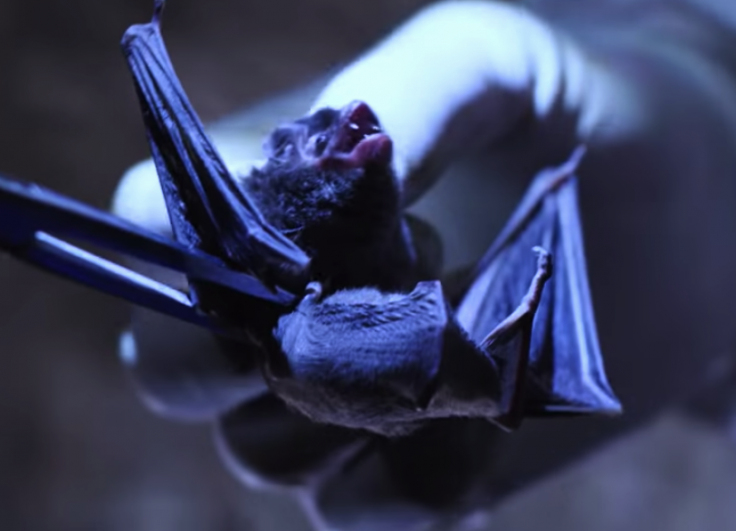A Chinese documentary film featuring a Wuhan-based virus expert has recently emerged, fuelling a conspiracy theory, which suggests that the novel coronavirus outbreak was leaked by Wuhan's Municipal Center for Disease Control and Prevention (CDC)
The seven-minute film, posted online in December, shortly before the Covid-19 outbreak began, features the centre's researcher Tian Junhua, who has visited dozens of caves in China's Hubei province to capture bats and take research samples from the flying mammals that have been identified as one of the main carriers of the deadly coronavirus.
Wuhan CDC's research on bats

Titled "Youth in the Wild — Invisible Defender," the short documentary has reignited a wild conspiracy theory that the coronavirus pandemic could be a man-made crisis. The films reveals how the Wuhan CDC labs have been studying bats for research and shows Mr Tian and his colleague exploring a cave to capture the nocturnal creatures for samples while wearing protective suits.
Tian himself expresses the dangers of coming in close contact with bats. "Among all known creatures, bats carry various viruses. [One] can find most viruses responsible for human diseases in them," he explains in the documentary, before adding that he often feels scared during these expeditions due to the potential risk to deadly viruses.
"I can feel the fear: the fear of infections and the fear of getting lost. Because of the fear, I take every step extremely cautiously. The more scared I feel, the more care I take in executing every detail," he says. "Because the process of you finding the viruses is also when you can be exposed to them the easiest."
The researcher has visited dozens of unexplored caves in the province and studied more than 300 virus vectors over the last decade. "I do hope these virus samples will only be preserved for scientific research and will never be used in real life," he notes.
COVID-19 leaked in CDC lab?

An anonymous US State Department official has raised concerns over Tian's role in working with bat viruses at the Wuhan CDC. "He lives and works at Wuhan's CDC, a few hundred yards away from the Huanan wet market," the official told The Washington Times. The Huanan wet market is a wild animal market that was identified by Chinese health officials as the epicentre of the COVID-19 pandemic.
The documentary, which is available on YouTube, boasts that China has taken the lead in global virus research and discovered over 2,000 viruses, including the deadly bat coronaviruses, over the past 12 years, the time since the outbreak of the bat-origin virus that caused the severe acute respiratory syndrome (SARS) outbreak.
Chinese state media outlets have reported that Tian once failed to wear protective gear in a cave and as a result was exposed to bat urine. In order to avoid contracting a disease, he was forced to quarantine himself for 14 days – the same self-isolation period recommended for people exposed to COVID-19.
Biosecurity researcher Richard Ebright, a professor at the Waksman Institute of Microbiology, said the coronavirus behind the pandemic was 96.2 per cent similar to a bat virus discovered by the Wuhan Institute of Virology in 2013 and studied at the Wuhan Centre for Disease Control (CDC).
"Bat coronaviruses are collected and studied by laboratories in multiple parts of China — including Wuhan Municipal CDC and Wuhan Institute of Virology," he told The Washington Times. "Therefore, the first human infection also could have occurred as a laboratory accident."









